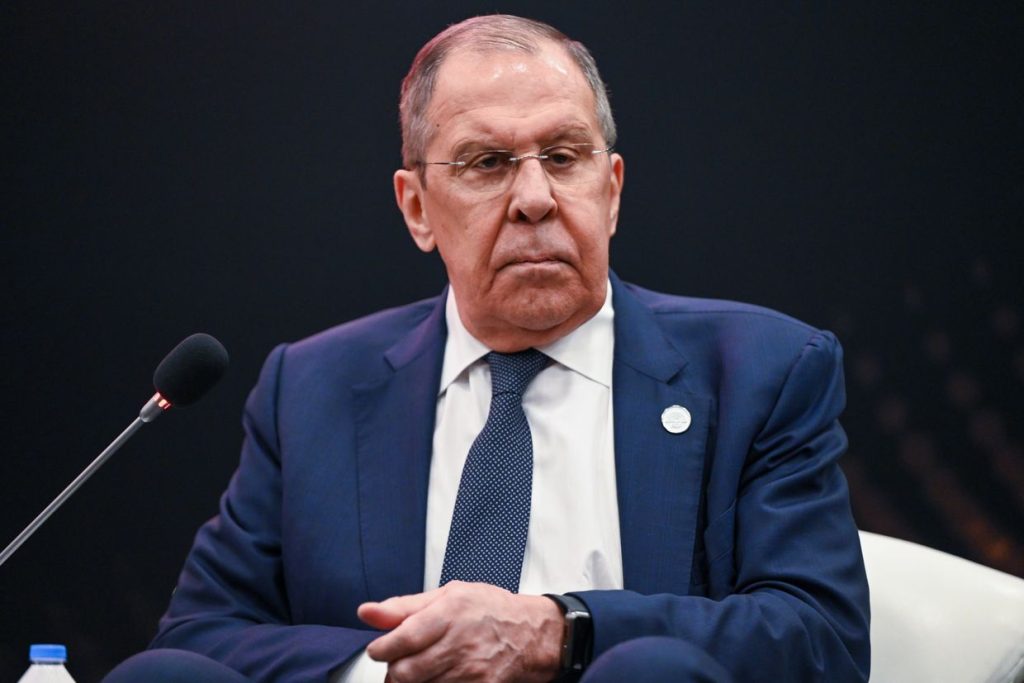Russian Foreign Minister Sergei Lavrov is scheduled to meet with his Chinese counterpart, Wang Yi, on April 8-9 for bilateral talks in China. The two officials will discuss cooperation in the international arena and address hot topics, including the ongoing conflict between Russia and Ukraine, which the Russian Foreign Ministry referred to as the “Ukrainian crisis.” With Russia facing isolation from the West due to its brutal war against Ukraine, it has increasingly turned to China for support, as China remains one of its few allies. The West has expressed concern about the deepening relationship between Russia and China, which they labeled as a “no limits” partnership just before Russia’s invasion of Ukraine in February 2022. Reports indicate that the U.S. is cautioning its allies about China’s increased support of Russia, including supplying geospatial intelligence to aid Moscow in its military operations.
Amidst the escalating conflict between Russia and Ukraine and the increasing isolation of Russia from the West, Russian President Vladimir Putin is reportedly scheduled to visit China in May to meet with Chinese President Xi Jinping. This visit comes at a critical time when Russia is in need of support and partnership, especially as the international community condemns its actions in Ukraine. The meeting between Putin and Xi Jinping is expected to strengthen the relationship between Russia and China, as both countries seek to bolster their strategic alliance in the face of Western condemnation. It also highlights the growing alignment of interests between Russia and China, as they navigate geopolitical challenges and assert their influence on the global stage.
The deepening ties between Russia and China, particularly in the context of Russia’s conflict with Ukraine, have raised concerns among Western countries, including the United States. Reports suggest that China has been providing intelligence support to Russia, including geospatial information, to assist Moscow in its military operations in Ukraine. The U.S. is cautioning its allies about China’s backing of Russia, as it seeks to undermine Russia’s aggression in Ukraine and prevent further escalation of the conflict. The U.S. government’s efforts to highlight China’s support for Russia underscore the complex dynamics of international relations and the shifting alliances in the midst of global crises.
As Russia continues its military offensive in Ukraine and faces increasing isolation on the world stage, its partnership with China has become a focal point of international attention. The close relationship between Russia and China, characterized as a “no limits” partnership by Western analysts, has raised concerns about the implications of their alliance on global security and stability. The growing alignment between Russia and China, as evidenced by high-level meetings between their leaders, underscores the shifting power dynamics in the international system and the challenges posed by authoritarian regimes cooperating to advance their interests. The intensifying cooperation between Russia and China adds a new dimension to the geopolitical landscape and raises questions about the balance of power in a world marked by strategic competition and assertive behavior by authoritarian regimes.
The forthcoming meeting between Russian President Vladimir Putin and Chinese President Xi Jinping is expected to further solidify the strategic partnership between Russia and China and deepen their cooperation in the face of international condemnation. The meeting comes at a critical juncture when Russia is in need of support and China is seeking to expand its influence on the global stage. The alliance between Russia and China, seen as a counterbalance to Western dominance, poses a challenge to the existing international order and raises concerns about the implications of their cooperation for global security and stability. As Russia and China strengthen their alliance, Western countries, led by the U.S., are closely monitoring the situation and seeking to counter the growing influence of authoritarian regimes on the world stage.
In the midst of the Ukrainian crisis and Russia’s escalating conflict with Ukraine, the partnership between Russia and China has taken on added significance, as both countries seek to advance their strategic interests and challenge the existing world order. The deepening alliance between Russia and China, underscored by high-level diplomatic engagements and military cooperation, poses a challenge to Western countries and raises questions about the future of international relations. As Russia and China strengthen their partnership in the face of Western condemnation, the global power dynamics are undergoing a significant transformation, with authoritarian regimes asserting their influence and challenging the established norms of international behavior. The meeting between Putin and Xi Jinping is likely to shape the trajectory of Russia-China relations and have far-reaching implications for the global balance of power.















